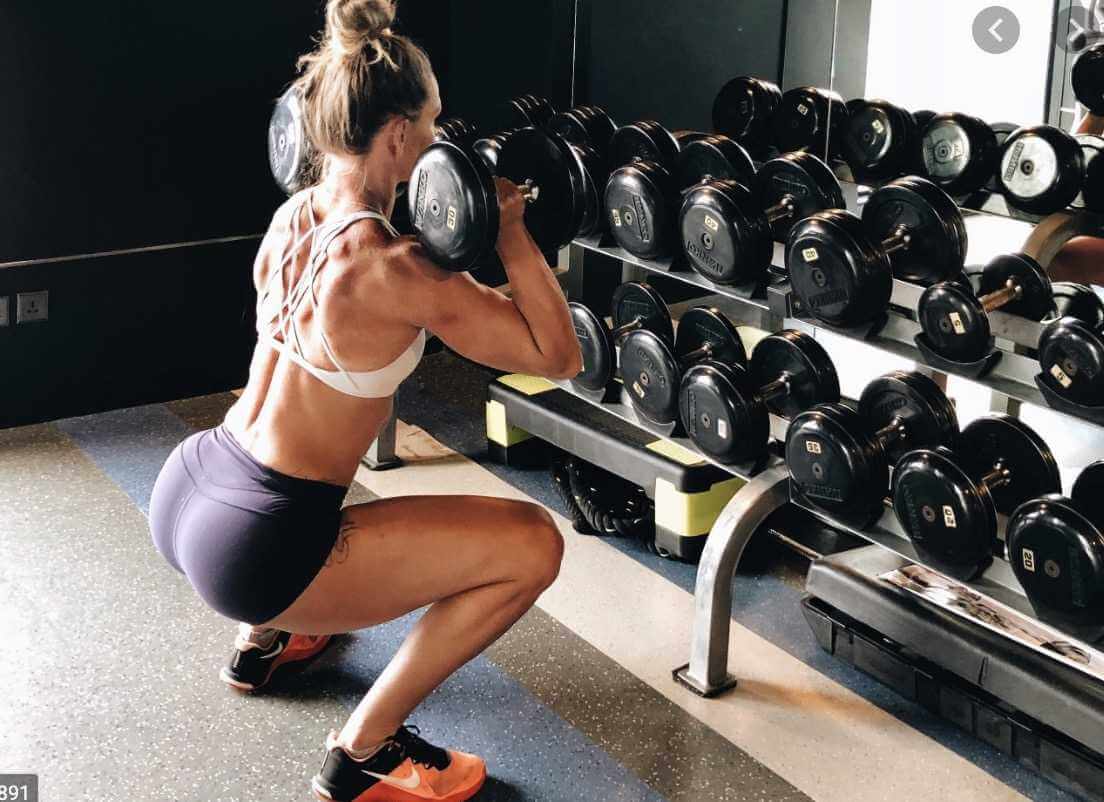The Hard Truths of Improving Physique and Fitness Here’s how to maintain muscle tone during a gym hiatus. Whether you’re … Consider exercising the rest of your (non-injured) body.

The human body has a naturally occurring complement of muscle that’s determined by genetics, gender, and age. You can train your body to increase the amount of muscle by doing exercises that stimulate muscle growth. Even so, how much your muscles grow in response to work or weight lifting will still depend on your gender, age, and genes.
It’s in the Genes
In bodybuilding and weight training, people who don’t naturally carry or easily enhance muscle are often called “hard gainers.” This sounds a little derogatory, but it’s more a statement of fact. People with a lean rather than solid natural build are categorized scientifically as ectomorphs. The more muscled builds are mesomorphs. Those that carry more fat naturally might be endomorphs. But don’t panic, there are many shades in between, and you are not destined to a life of a skinny ectomorph, although ectomorphs are probably never going to be Mr. Universe, steroids aside.
Preventing Muscle Loss
Whatever your propensity to carry, build, and maintain muscle, here are some tips on how not to lose that muscle once you’ve gained it:
1. Weight Training for Life
From around the time of 40, we start to lose muscle mass naturally, probably as the male hormone testosterone declines along with lower levels of physical activity. The natural loss may be around 3 percent to 10 percent of muscle mass per decade after age 50 and perhaps even more for those in less than ideal health. Seniors can prevent or at least slow this natural state of loss by staying active.
Work out with weights two to three times each week, exercising all your major muscle groups. Allow two days between workouts if possible.
2. Make Sure You’re Getting Enough Protein
Especially if you’re a senior, you also need to ensure that you eat well and get the recommended amount of protein for your activity level. You need at least 0.8 grams of protein per kilogram of body weight each day and up to 1.2 grams is better for seniors.1 To figure out the amount of protein you need, take your weight in pounds and multiply it by 0.45. Multiply that number by 1.2 and that’s your recommended daily protein intake.
3. Eat Right
While eating sufficient protein is important, and heavy trainers like athletes might need a little more protein than those mentioned above, eating sufficient energy is probably even more important. If you don’t eat (and drink) sufficiently to maintain your body weight in accord with how much energy you expend in day-to-day living, including physical activity, you will lose muscle and probably bone—and fat of course. It can be a little tricky losing fat while maintaining muscle, but weight training certainly helps you hang onto that muscle in those circumstances.
If you’re a sports athlete or serious recreational athlete, you need to determine an ideal weight for your activity, keep a watch on the scales, and adjust your diet and exercise accordingly.
4. Train Right
Muscle has a nice store of available glucose. When you run out of the glucose stored in the muscle, and blood glucose and liver glucose are also low, your body knows it can get more glucose from muscle protein to maintain the brain and other important organs. And that’s exactly what it does: the hormone cortisol breaks down muscle into amino acids, then another hormone, glucagon, strips amino acids and turns the carbon skeleton into glucose. Your body needs to do this to ensure a steady supply of glucose.
This is obviously not good for muscle maintenance—or muscle building for that matter. Don’t train hard on an empty or fasted stomach consistently. If you do, take in an energy drink while you train to prevent this process called gluconeogenesis2 from occurring. There is also a risk of this with low-carbohydrate diets.
Refueling after exercise is also important. Taking in some protein and carbohydrate within an hour of your workout, and sufficiently beyond that to refuel, will help to ensure muscle maintenance and even growth as you get an insulin spike.
5. Get Sufficient Sleep and Relaxation
Sleep is a time of rebuilding. Hormones like testosterone and human growth hormone set about rebuilding and repairing your body. Restful sleep helps with this process, so make sure you get it. Relaxation is important too since emotional stress will induce catabolic stress hormones, which means more destruction of muscle if you’re not careful.
6. Limit Alcohol Intake
This is not to say you can’t have a drink, but excessive alcohol intake doesn’t do your muscle load any good at all. Apart from all the other destructive effects of excessive alcohol consumption, imbibing too much raises estrogen levels and knocks around your testosterone, causing more muscle loss.




